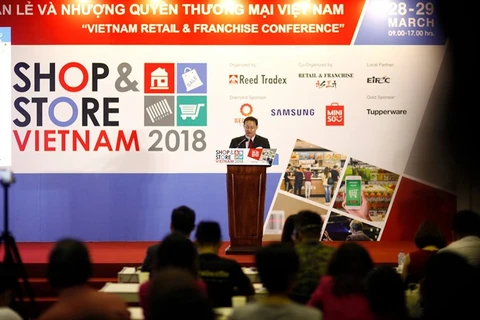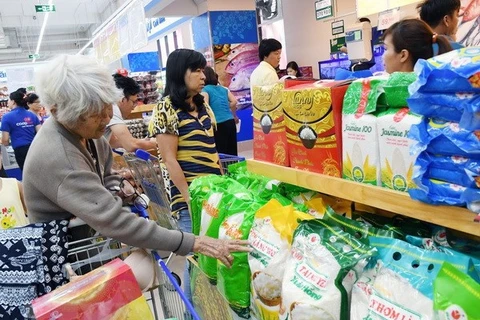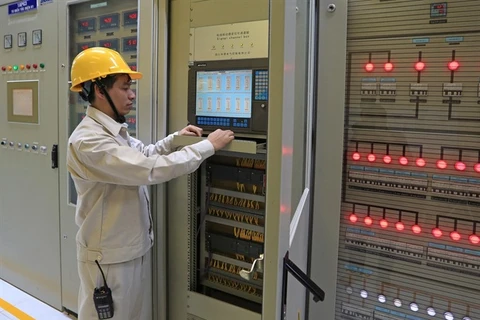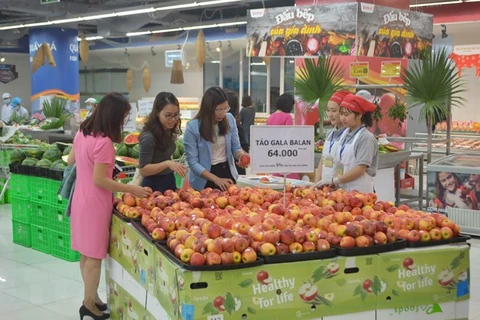Hanoi (VNA) – Japanese retailers such as Aeon, Takashimaya, 7-Eleven and FujiMart are expanding operations in Vietnam and changing local consumption habits.
Traditional markets in the Southeast Asian nation are being replaced by supermarkets and convenience stores where consumers can buy many essential products at the same time.
A survey conducted by Q&Me reveals that up to 37 percent out of 400 Vietnamese consumers aged from 18-39 said they shop in supermarkets from 1-2 times per week.
The interviewees said they often buy food and fast-moving consumer goods, and quality is more important than price.
According to Keisuke Hitotsumatsu, General Director of FujiMart Vietnam Retail, a joint venture between Japan’s Sumitomo Corporation and BRG Group of Vietnam, said FujiMart offers diverse seasonal products.
Most of consumers want to see, touch and even taste products and enjoy the busy atmosphere in the shopping venues, he said.
Apart from BRG Group, in June 2017, Sumitomo secured a 20 percent stake in Bibo Mart JSC through its affiliate, which is also Japan’s leading fund management company.
With the cooperation, Bibo Mart is expected to expand and earn at least 300 million USD in 2019.
Sumitomo has also partnered with Thailand’s Saha Group to penetrate the Vietnamese real estate market through a 4 billion USD smart city project in Hanoi’s outskirts district of Dong Anh.
Aeon has also earned profits while operating commercial centres in Vietnam, with its turnover increasing from some 3.8 trillion VND (163 million USD) in 2016 to more than 5.1 trillion VND (219 million USD) last year.
Apart from four operational centres, Aeon will open two others in Hanoi’s Ha Dong district and the northern port city of Hai Phong in the near future, and aims to have 20 centres across Vietnam by 2025.
Takashimaya set foot in Vietnam two years ago with a more than 25 million USD commercial centre in Ho Chi Minh City, the country’s largest economic hub.
Entering HCM City nearly two years ago, 7-Eleven is expected to have 100 stores within three years and 1,000 in the next 10 years.
The Japanese retailers have grown to understand consumption habits of local people. However, they face fierce competition with local retailers, which are also growing fast.-VNA
VNA
























